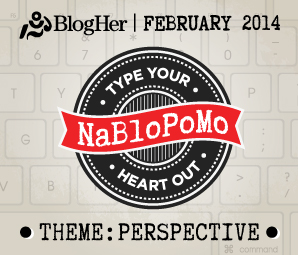Fun Fact: According to current stats, the majority of my blog’s visitors – 66.60%, in fact – reside in the United States, while only 13.00% are from my native country of Canada. That’s quite an extreme difference! Really, though, apart from being a rather odd little statistical quirk, this tidbit of information shouldn’t make any difference as to how I write, or what I post, or the way I construct my comments or replies… should it?
Surprisingly enough, it actually does.
Though the two nations share a border (and an incredibly long one at that), we are notably different in ways that cross my mind nearly every time I sit down to share my thoughts through my writing.
I’ve heard it said that when it comes to informal communication – such as an e-mail to a friend, a comment on Facebook, or perhaps a personal blog post – perfection in editing should take a back seat to deference for your reader. For example, if using a particular word or spelling, though correct, would actually distract the reader and thereby take away from your message, it would be more appropriate, even respectful, to instead work with what you might consider to be an error.
Even though these statistics and guidelines for deference indicate that I should be writing with my American readers in mind, my inner editor (who’s a relentless perfectionist, a stubborn purist, and extremely happy to be Canadian) simply rebels. She will occasionally cater to the notion grudgingly, albeit in a roundabout way (case in point – upon review of the earlier text, the original words “are neighbours” were replaced with “share a border”), but most of the time, such verbal gymnastics simply aren’t considered.
You’d be surprised how often such things occur.
My US friends blithely (and quite correctly) fill their blog posts with colors, favors, and honor, while I (also correctly) populate mine with colours, favours, and honour. They cash their checks, spend money at shopping centers, and wear jewelry; I cash my cheques, spend money at shopping centres, and wear jewellery. They tell stories of when they were in third grade, or a sophomore; for me, it was Grade 3 and… Grade 9? Grade 10? (I always have to stop and do a mental translation of high school references, and usually get them wrong.) They talk of miles per hour and degrees Fahrenheit, while my posts refer to kilometres (not kilometers!) per hour and degrees Celsius. They speak of co-pays and insurance premiums; I visit my doctor with no thought as to the cost. To my US friends, “south of the border” means Mexico, whereas to me, “south of the border” is actually the United States.
I could go on and on.
 I continue to use my country’s unique spelling and terminology in my personal writing, on the one hand glad of our distinction yet at the same time with an underlying impulse to justify or apologize, hoping desperately that no one will assume I am ignorant, a bad speller, or awkwardly foreign, and therefore simply dismiss my work or my message like one might nix a superfluous u.
I continue to use my country’s unique spelling and terminology in my personal writing, on the one hand glad of our distinction yet at the same time with an underlying impulse to justify or apologize, hoping desperately that no one will assume I am ignorant, a bad speller, or awkwardly foreign, and therefore simply dismiss my work or my message like one might nix a superfluous u.
This, in part, represents some of the frustrations I have as a Canadian – a non-American – living in what many would consider to be a largely US-centric world. Our countries are immediate neighbours, yet so many day-to-day points of reference – our words, our spelling, our experiences – are diverse enough that at times it feels as though we speak a different language, live in distinct and unique cultures. And, as a member of the minority speaking to the majority, it can be challenging to communicate my message with authenticity while walking the line between compromising my culture and alienating my readers.
Yet despite the struggles, I am grateful for the awareness and perspective that being an “other” – a citizen of a country whose norms and practices are not necessarily the default – has afforded me, both in everyday life and as expressed through my writing.
What are your thoughts on language and spelling differences?
Please share!
(Updated from original post in April, 2012.)













